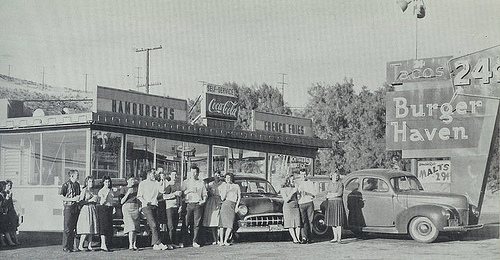By Robert Samuelson
It's time to retire the American Dream --
or at least give it a long vacation. We ought to drop it from our national
conversation. This would be a hardship for politicians and pundits, who use
"the American Dream" as a rhetorical workhorse embodying goals
embraced by almost all Americans. That's the problem. The American Dream has
become so expansive in its meaning that it stifles honest debate and harms some
of the very people it is intended to help.
Who can oppose the American Dream? No one.
It captures our faith in progress, opportunity and striving. It reflects hopes
for a large and stable middle class. Everyone would go to college, become a
homeowner. Children would always live better than their parents.
This election often seems a contest over
whether President Obama or Mitt Romney can best restore the Dream. To the
extent people believe this, one outcome is certain: disappointment. The Dream's
ultimate appeal lies in its promise of personal fulfillment, which can't be assured.
Curiously, history confirms this. Despite
its present popularity, the phrase "the American Dream" came into
common use only after the 1970s. By most accounts, historian James Truslow
Adams coined it in his 1931 book "The Epic of America." Adams imagined
a "social order in which each man and each woman shall be able to attain
to the fullest stature of which they are innately capable, and be recognized by
others for what they are."
But the phrase languished, probably
because it seemed contradicted by experience. For most Americans, life had
always been a struggle. Little was guaranteed. By contrast, Adams' lofty vision
was utopian.
Now it's become an informal entitlement.
Credit Bill Clinton, if anyone, for this. He popularized the notion that Americans
"who work hard and play by the rules should not be poor." So, if
people are purposeful and responsible, society -- through government -- should
build pathways to the Dream and all it implies (a good job, decent home, more
freedom and choice).
Personal responsibility warranted
collective action. But in practice, the pathways often led to dead ends. A
college degree, it was argued, meant better jobs; therefore, it made sense to
subsidize loans allowing more students to go to college. With higher-paying jobs,
borrowers could easily service their loans. This worked for some, though not
for all. Many students were left with heavy debts and no degree.
A study from economists at the Kansas City
Federal Reserve reports: Fewer than 60 percent of college freshmen graduate
within 6 years; student debt now totals about $1 trillion; for 25 percent of
borrowers, annual repayments exceed $4,584; default rates are almost 9 percent.
"Defaulted borrowers may be sued, tax refunds may be intercepted, and/or
wages may be garnished," the report notes.
The plugging of homeownership -- the
quintessential symbol of "making it" -- is another perverse pathway.
True, homeownership is a laudable goal; it stabilizes neighborhoods, for
example. But the promotion went overboard. Lax lending standards lured people
into buying homes they could not afford, contributing to the 2007-09 financial
crisis. Again, victims were the intended beneficiaries; since 2007, at least 5
million Americans have lost homes through foreclosure, reports CoreLogic.
There is nothing wrong with a little
over-the-top optimism and hope. It is inevitable and even healthy, if it makes
people feel good and inspires them to rewarding behavior. The trouble with our
American Dream infatuation is that it transcends these common-sense boundaries.
It has become a substitute for addressing real problems and a collective act of
self-deception.
The invocation of the American Dream
presumes that there are no conflicts among groups. With the correct mix of
personal responsibility and government programs, everyone can achieve the
Dream. But some conflicts cannot be wished away. One is between young and old.
As baby boomers retire, federal spending on the elderly will soar. This will
help retirees attain their dreams, while making it harder -- through higher
taxes or lower public services -- for the young to realize theirs.
What also cannot be wished away are
on-the-ground realities that impede middle-class status for more Americans.
Only one-third of children born to the poorest fifth of Americans graduate high
school with at least a 2.5 grade-point average and without having become a
parent or been convicted of a crime, reports a Brookings Institution study.
Brookings economist Isabel Sawhill notes that gaps have widened between the
children of poor and well-to-do families on school test scores, college
attendance and family formation. In his book "Coming Apart,"
conservative scholar Charles Murray makes similar points.
For politicians and pundits, the virtue of
the American Dream is that it's disconnected from nasty facts and choices. It's
a slogan that shouldn't survive -- but will endure precisely because it's an
exercise in make-believe

No comments:
Post a Comment